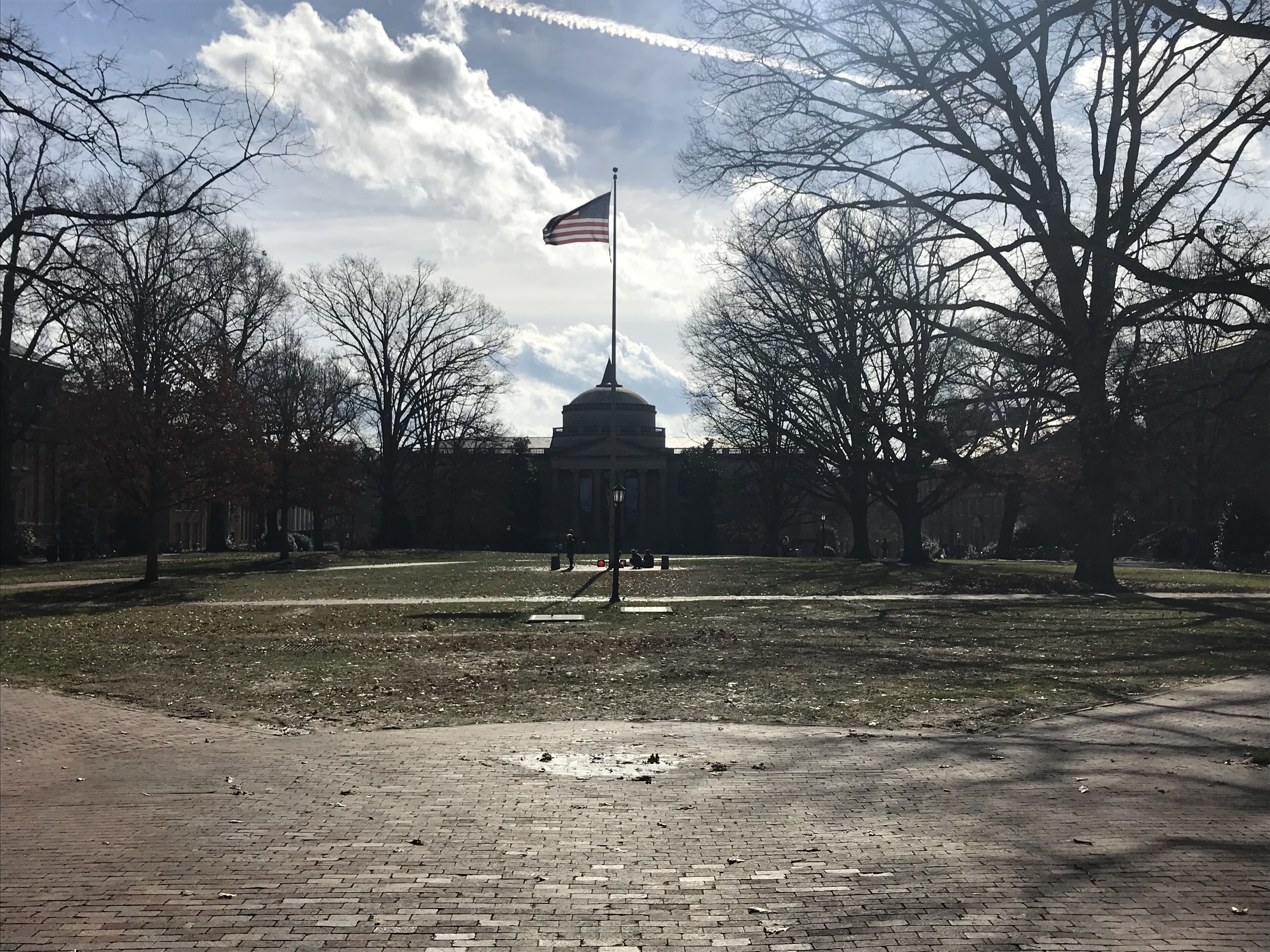CHAPEL HILL – Researchers at the University Of North Carolina School Of Medicine have discovered a possible cause of autism.
A key group of enzymes, called topoisomerases, can have profound effect on the genetic factors behind brain development. Associate professor in the Department of Cell Biology and Physiology, Mark Zylka, says that these enzymes work to help keep DNA normal during developing times in a child’s life.
“These are enzymes that are called topoismerases, we like to think of them as the scissors and glue for DNA,” Zylka said “so DNA is a molecule that often gets tangled up inside of cells, and to relieve these tangles, these enzymes can cut the DNA, untangle it, and glue it back together.”
When topoisomerase inhibitors are present it may limit what genes are “untangled.” Zylka said that he found when these inhibitors are present long genes and genes related to autism are the most affected.
“So what we found was that these enzymes seem to play a very important role in neurons in the brain, these are brain cells, and in particular these enzymes seem to be important for allowing genes that are very long to be expressed, and in particular a large number of genes that have been linked to autism spectrum disorders” Zylka said.
These inhibitors that affect the enzyme topoisomerases are known to exist in chemo-therapeutic drugs and have been around for over 40 years. It was while studying these drugs that Zylka first began to study the effect the inhibitors would have on neurons. Zylka says they noticed that the drugs had effects on long genes, and that autism genes are also very long.
“So that’s when we sort of put two and two together and realized that inhibiting these enzymes could have a profound effect brain development” Zylka stated.
Discovering these enzyme inhibitors can lead to new discoveries for autism and diagnosing what exactly is happening. Zylka says that he thinks studying these inhibitors can help us identify what in nature may have inhibitors like these that could cause autism.
“We found that if you inhibit these enzymes, the expression of a lot of very long genes is impaired and so a lot of these genes are autism genes,” Zylka said “and so we think this could be used as a way to diagnose or to identify other factors or chemicals in the environment with similar effects.”
Currently the known inhibitors that Zylka is studying are in Chemo-therapeutic drugs and would only affect cancer patients that are going through Chemo-therapy.
Related Stories
‹

Trump Makes Unfounded Claims About Tylenol and Repeats Discredited Link Between Vaccines and AutismPresident Donald Trump on Monday used the platform of the presidency to promote unproven and in some cases discredited ties between Tylenol, vaccines and autism.

Chapel Hill Library Launches New Neurodiversity & Nature InitiativeThe Chapel Hill Public Library is launching the Neurodiversity and Nature initiative to support inclusion and promote environmental education.

Focus Carolina: Kara HumeTune in to Focus Carolina during morning, noon and evening drive times and on the weekends to hear stories from faculty members at UNC and find out what ignites their passion for their work. Focus Carolina is an exclusive program on 97.9 The Hill WCHL, sponsored by the University of North Carolina at Chapel Hill. Kara Hume, […]
![]()
UNC Donates Kits for 'Autism Friendly' Performance of Elf at DPACEarlier this month, UNC Health Care sponsored an “autism-friendly” performance of “ELF The Musical” at DPAC. The performance was designed for those on the autism spectrum that may have difficulty focusing in a theater or could benefit from a more relaxed environment. UNC Health Care donated over 2,000 sensory friendly kits for audience members with […]

UNC Autism Research Center Announces New Fundraising CampaignThe UNC Autism Research Center is setting a goal to raise $50k to fund interdisciplinary postdoctoral research. The fundraising campaign was launched on April 2, which is World Autism Day. UNC Autism Research Center project manager Allison Zoller says in addition to funding the position, she believes the fundraiser will boost awareness for the center. […]

FPG Institute Launches Project to Narrow Down Best Practices for Children with AutismUNC’s Frank Porter Graham Child Development Institute is launching a project called The National Clearinghouse on Autism Evidence and Practice. The project will review thousands of research articles about children with autism to narrow down most effective practices. FPG advanced research scientist and director of the National Clearinghouse on Autism Evidence and Practice, Kara Hume, […]
![]()
UNC Employees Publish Book Linking Autism and Substance AbuseUp until recently, substance use disorder was considered rare among those on the autism spectrum. Clinical instructor at UNC’s Addiction Detox Unit in WakeBrook in Raleigh Elizabeth Kunreuther and faculty member at the Carolina Institute for Developmental Disabilities at UNC Ann Palmer decided to research and write a book about the topic but found little […]
![]()
Why Vaccinate?Concerns about vaccination linger even though the "autism" study was debunked - so pediatricians are getting the word out.
![]()
'Autism Speaks' Pushes NCGA to Pass Health Insurance LawRepresentatives of a nationwide autism organization are lobbying the North Carolina Senate for health insurance that covers autism treatments for kids who are diagnosed as early as age 2.
![]()
UNC Researchers Find Possible Cause For AutismResearchers at the University Of North Carolina School Of Medicine have discovered a possible cause of autism.
›






